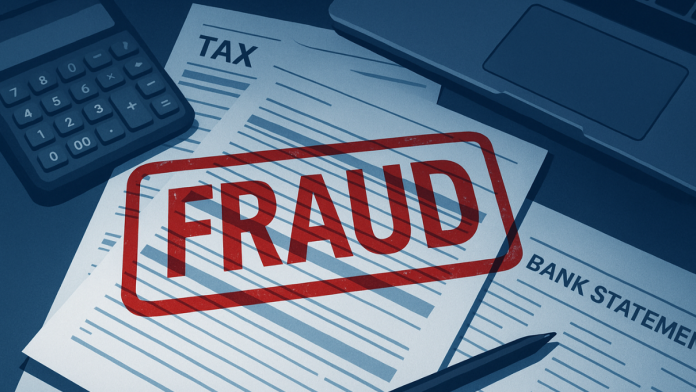A founder of a lending service company has pleaded guilty to a serious crime involving fake loans tied to the COVID-19 relief program. Nathan Reis, who co-founded the company Blueacorn, admitted to using dishonest methods to get money they should not have received through the Paycheck Protection Program (PPP). This case reveals how some people took advantage of a government program designed to help small businesses during a tough time.
How the Fraud Scheme Worked
The COVID-19 pandemic caused many businesses to struggle financially. To help, the U.S. government created the Paycheck Protection Program (PPP). This program gave loans to small businesses so they could keep paying their workers. These loans were backed by the U.S. Small Business Administration (SBA), meaning the government promised to cover the money if businesses couldn’t pay it back.
Nathan Reis helped start Blueacorn in April 2020, a company meant to assist small businesses and individuals in applying for PPP loans. But instead of helping honestly, Reis and his co-conspirators submitted fake loan applications. They created false documents, like fake tax returns and bank statements, that made it look like businesses earned more money than they actually did. This deception allowed them to receive larger loan amounts than they were eligible for.
Reis and his group also charged borrowers fees based on a percentage of the loan funds they got. This meant the more fraudulent loans they helped approve, the more money they made. This scheme took money away from the businesses that truly needed help during the pandemic.
Types of Fraud Committed
The fraud committed by Nathan Reis and his co-conspirators involved making up false information to trick the government into giving them money they didn’t deserve. Specifically, they fabricated documents like tax returns and bank statements. These fake papers showed income and payroll amounts that were not real, making it seem like the businesses were bigger or had more employees than they actually did.
For example, payroll figures are important because the PPP loans were meant to help businesses keep their workers paid. By inflating payroll numbers, Reis and his group made it look like they needed more money. This allowed them to receive larger loans based on false claims.
Submitting these fake documents is a serious crime because it wastes taxpayer money and takes away support from honest small businesses that genuinely needed the relief during the pandemic.
Legal Actions and Consequences
Nathan Reis, who is 47 years old and lives in Puerto Rico, pleaded guilty to conspiracy to commit wire fraud. This means he admitted to planning and carrying out a crime using electronic communications such as emails or online loan applications.
He is scheduled to be sentenced later this year. Sentencing is when a judge decides how much punishment someone will get after they are found guilty. Reis faces a maximum penalty of 20 years in prison, which is a very serious consequence.
Amachukwu charged in $8 million hacking and wire fraud scheme
The judge will consider guidelines set by the U.S. Sentencing Commission. These guidelines help decide a fair punishment based on factors like how much money was stolen and if the person shows any remorse. The judge also looks at other legal rules before making a final decision.
Broader Impact and Enforcement
Several government agencies, including the FBI, IRS Criminal Investigations, and the SBA Office of Inspector General, worked together to investigate the case. Officials emphasized that stealing taxpayer money during a national emergency is a serious crime and showed their determination to hold fraudsters accountable.
Since the CARES Act created the PPP, more than 200 people have been prosecuted for trying to cheat the program. Authorities have seized millions of dollars in cash and luxury items bought with stolen PPP funds.
The Justice Department’s Fraud Section leads these prosecutions and works closely with units that investigate banks and financial institutions to keep the financial system honest and secure.
Nathan Reis’s guilty plea highlights how important it is to stop fraud during emergencies. It also reminds everyone that those who cheat the system can be caught and punished by the law.


